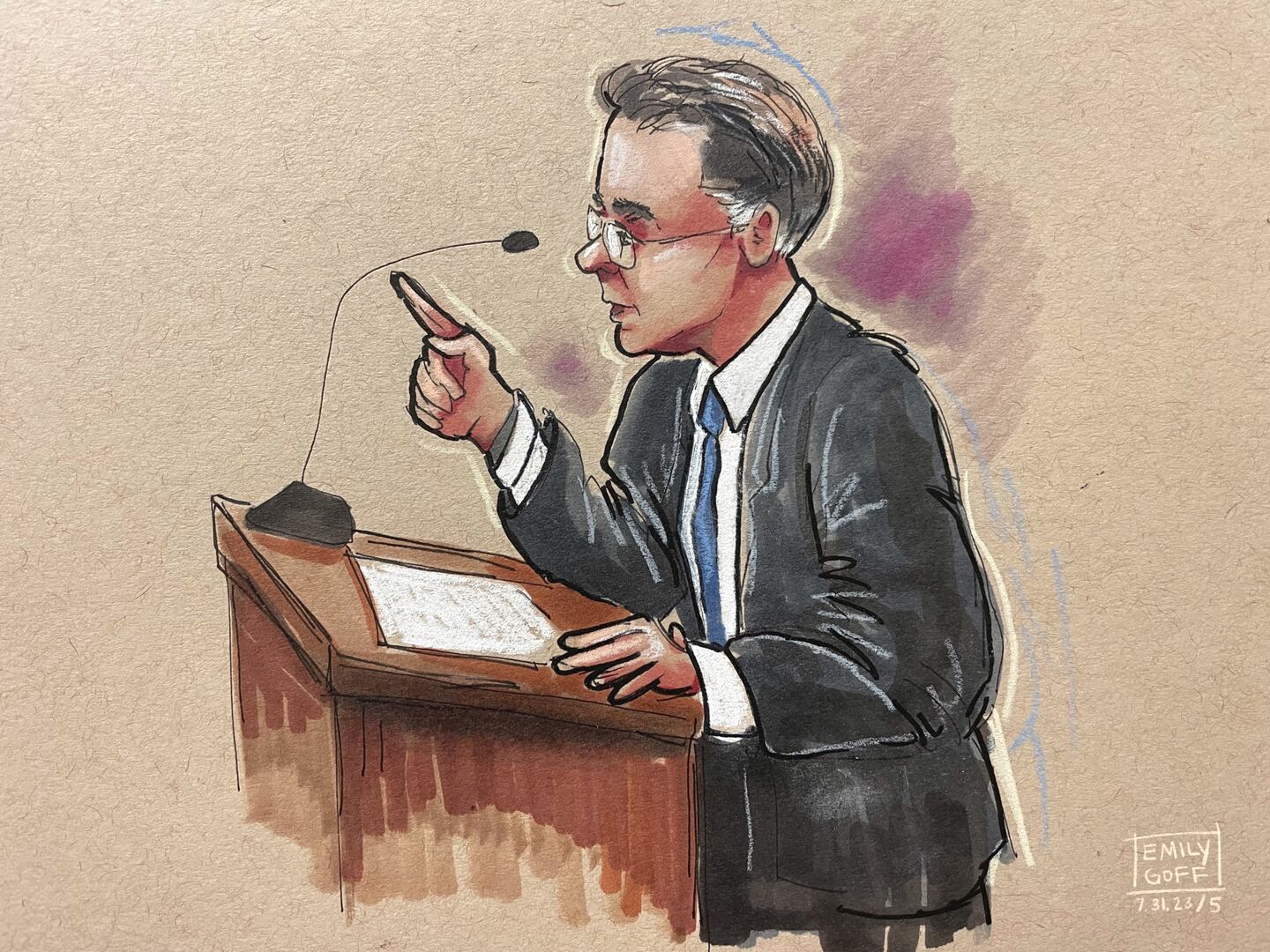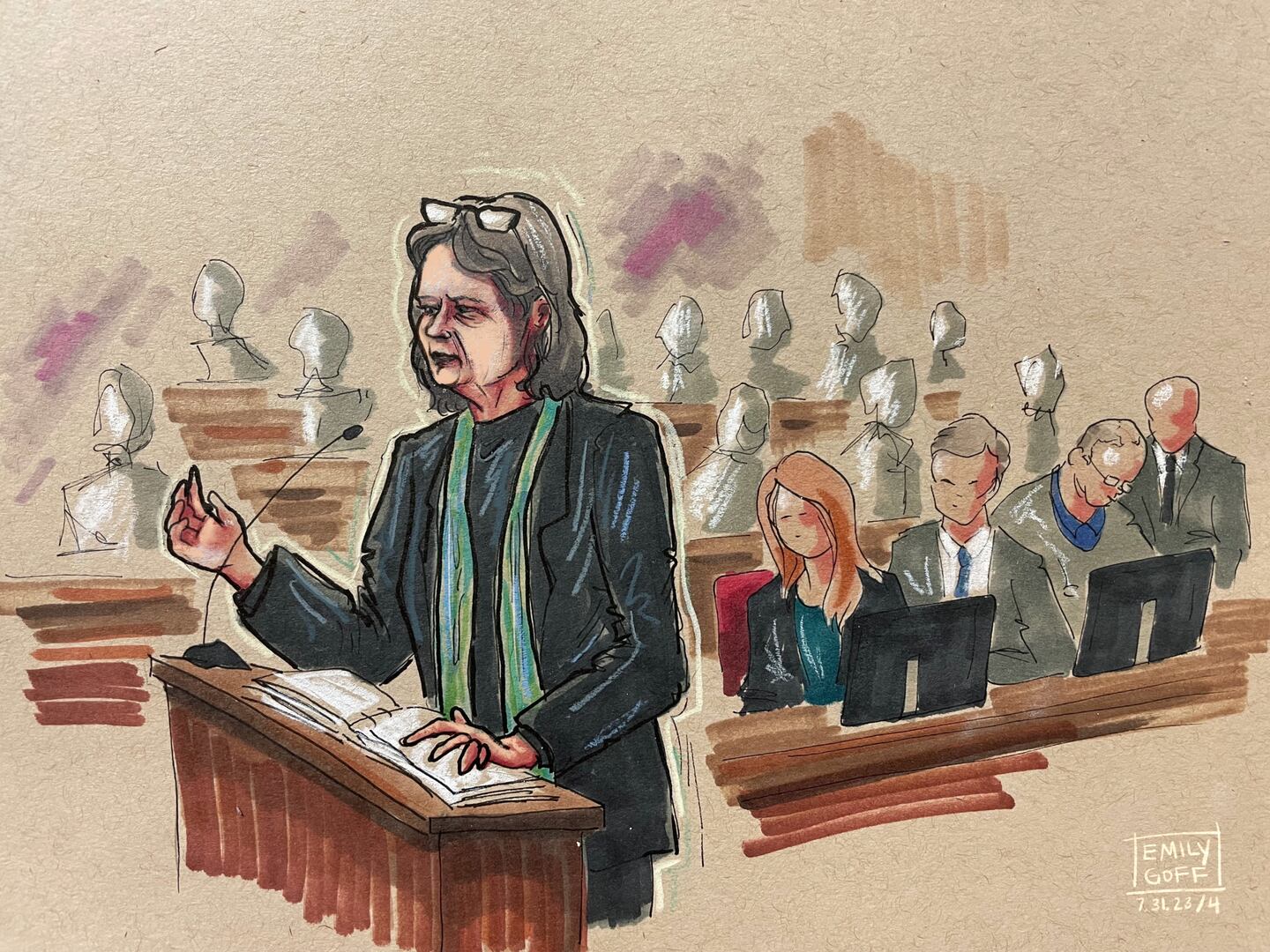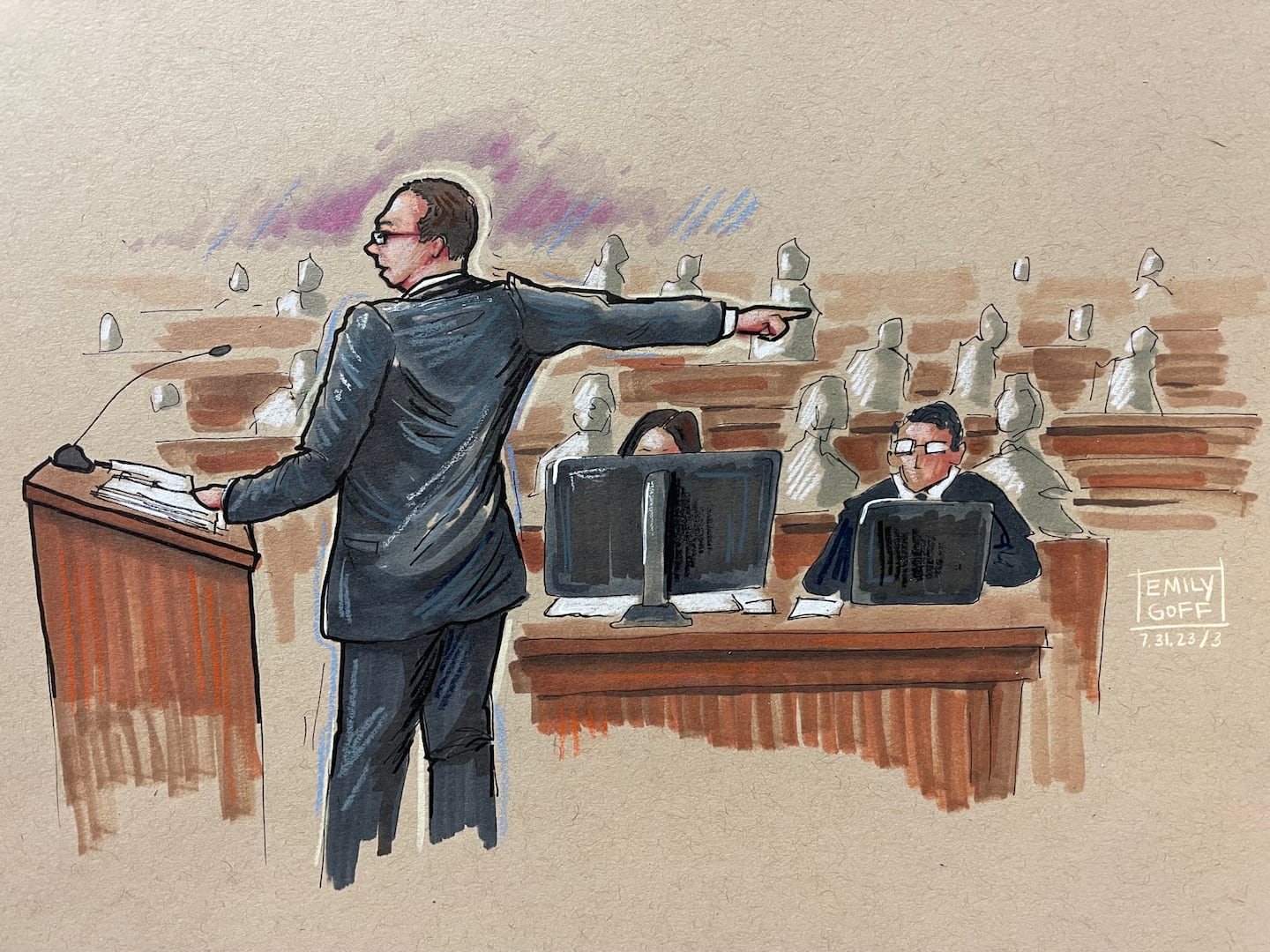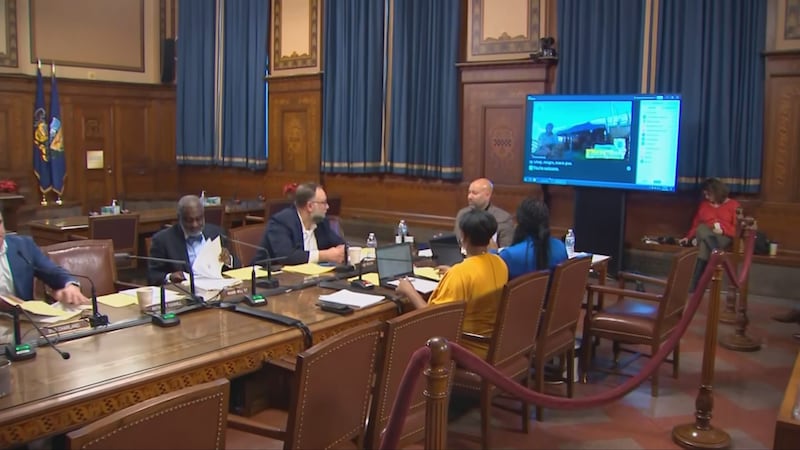PITTSBURGH — The defense and prosecution rested their cases and delivered closing arguments in the final phase of the Pittsburgh synagogue shooting trial.
At the end of closing arguments, the jury was dismissed for the day without beginning deliberations and is expected to begin in the morning.
If you or someone you know is experiencing mental health effects from the trial, go to 1027healingpartnership.org to find help resources. As always, call 911 to report threats.
- Phone: 412-697-3534
- Email: info@1027HealingPartnership.org
- Web: 1027healingpartnership.org
UPDATE 5:11 p.m.: Prosecution Rebuttal Closing Argument
Assistant U.S. Attorney Troy Rivetti opened the prosecution’s rebuttal closing argument by commenting on attorney Judy Clarke’s closing for the defense.
“She asks you to make the right decision. She spoke about the weight of life. The weight of life, the law values life, but let’s be clear here. The rule of law protects that value with clear laws that impose the most severe penalty.”
He told jurors that the penalty for murder is the most severe one that exists, and the aggravating murder of a single person can call for death.
Rivetti told the jurors to keep in mind they already found four aggravating factors in the second phase of the trial, when they only needed to find one.
“Hold him accountable for his decisions and his actions,” Rivetti said.
Rivetti also responded to Clarke’s closing by noting that she didn’t mention weighing the aggravating factors — which is a part of the stage the trial is currently in. He told the jury they’re deliberations should look at whether the facts and law call for a sentence of death.
In response to the defense’s call for mercy and the jury holding someone else’s life in their hands, Rivetti reminded the jury that Bowers committed the worst antisemitic mass shooting in US history and hadn’t expressed remorse.
He negated some of the evidence and testimony of the defense about Bowers’ childhood — saying it does not excuse Bowers’ actions.
“This defendant was entitled to his trial, he has had his trial,” Rivetti said. “Now it is time for his verdict. We ask you to keep your eyes wide open and speak with one voice. Unanimous verdicts that justice demands. A sentence of death.”
UPDATE 4:14 p.m.: Defense Closing Argument
Attorney Judy Clarke started closing arguments for the defense by acknowledging jurors more or less relived the day of the crime during the prosecution’s closing arguments.
But she reminded jurors of the questionnaire they filled out during jury selection, at the start of the trial months ago – saying they wanted to know more before making a decision about death.
“What has happened cannot be undone. All we can do is make the right decision moving forward. We are asking you to make the right decision, which is prison,” Clarke said. “This is a deeply moral decision for each of you to make. While you must discuss, consider and deliberate, this is an individual decision. I ask that you respect the views of each.”
Clarke said the defense does not excuse or make justifications for the crimes Bowers committed.
She reminds jurors they each have the power of life in their hands, and explains what they can and cannot consider during their deliberations.
She then walks back through Bowers’ childhood — highlighting mental health issues within his family, the chaos and instability he faced as a child, threats from his parents and his own struggle with mental health as an adult.
Clarke asked the jurors to take a step back and look at the bigger picture — pointing out that now, Bowers is a “model inmate.”
“What a tragedy is that. But is that who we kill? We’ve tried to tell you who he struggled to be,” Clarke said. “We want you to know who Rob Bowers is and can be. He could be more than the most unimaginable thing he’s done.”
Clarke then returned to what jurors will do in the deliberation room. She urged jurors to respect each other, but don’t come to a decision just because other jurors think it’s right.
“You’ve held Rob Bowers accountable. You have found him guilty of 63 counts, you found him eligible, but now we ask you to choose life not death,” Clarke said.
UPDATE 2:37 p.m.: Prosecution Closing Argument
Prosecutor Eric Olshan delivered closing arguments in the final phase of the Pittsburgh synagogue shooting trial Monday afternoon.
“Robert Bowers murdered 11 innocent people at the Tree of Life Synagogue in Squirrel Hill. He turned an ordinary Saturday Sabbath into the worst antisemitic mass murder and he’s proud of it,” Olshan said.
While closing, Olshan played 911 calls from several people within the synagogue that morning — all calling to report someone was inside with a gun and that people had been shot.
Olshan reminded the jury of what they’ve done so far — considering evidence that led them to find Bowers guilty of 63 counts and found him eligible for the death penalty on 22 counts. And, he reminded them of what they still must consider in deliberations for this final phase — like if the aggravating factors outweigh mitigating factors, if there’s sufficient evidence and scaling the aggravating factors.
Olshan then focused on the victims, telling the jurors they were all chosen because they were Jewish. And Tree of Life, it was selected because it was a house of worship and “much more of a symbol than any other target he considered.”
He reminded the jurors what each of the 11 victims are remembered as by the people close to them and the manner in which each person was killed by Bowers.
“How do you measure the impact of that loss? The defense council called it immeasurable in her opening statements, and she’s right it is immeasurable, but you still must take the weight of it and put it on the scale,” Olshan said. “The weight and impact of every person and put it on the scale.”
And the impact goes beyond the 11 killed, Olshan said. He reminded jurors of the impacts responding officers and survivors from within the synagogue face to this day — both the physical and emotional injuries.
“In the wake of all that death, the carnage, the trauma to the families. This defendant has no remorse for what he did,” Olshan said.
Olshan said jurors know about Bowers’ lack of remorse from his actions and his own words. He calls out the fact Bowers walked past several bodies on the way to kill more people within the synagogue as an example.
“Their bodies riddled with his bullets, lying in their own blood. He had to walk past Dan Leger who was dying on the steps or over Joyce Fienberg’s body to get back to the chapel to murder more people,” Olshan said. “That was his choice. His choice is more evidence for what he’d done.”
Olshan asked jurors to take everything they’ve learned into deliberations.
“This trial began two months ago on May 30th. Since then you’ve heard devastating detail of what the defendant did on October 27th, 2018. Take each of those details into deliberations with you,” he said. “Put it on the scale and weigh it for this defendant who is proud to have carried out the worst mass shooting of Jews in U.S. History.”
UPDATE 10:46 a.m. : Defense and prosecution rest in final phase of Pittsburgh synagogue shooting
The defense and prosecution have rested their cases in the final phase of the Pittsburgh synagogue shooting trial.
The prosecution does not have any rebuttal witnesses. The next step in this phase will be closing arguments.
The judge said he will go late into the night if needed to finish closings today.
On Friday, Dr. George Corvin, a psychiatrist who examined Bowers on multiple occasions and diagnosed him with schizophrenia, returned to the stand.
Corvin said that Bowers’ delusional thinking made him believe that Jews were possessed by Satan, which led to the shooting.
Corvin said a history of mental illness, specifically schizophrenia, led to this distorted thinking.
Bowers’ uncle and aunt also testified Friday, with his aunt continuing testimony today.
Download the FREE WPXI News app for breaking news alerts.
Follow Channel 11 News on Facebook and Twitter. | Watch WPXI NOW
TRENDING NOW:
©2023 Cox Media Group








